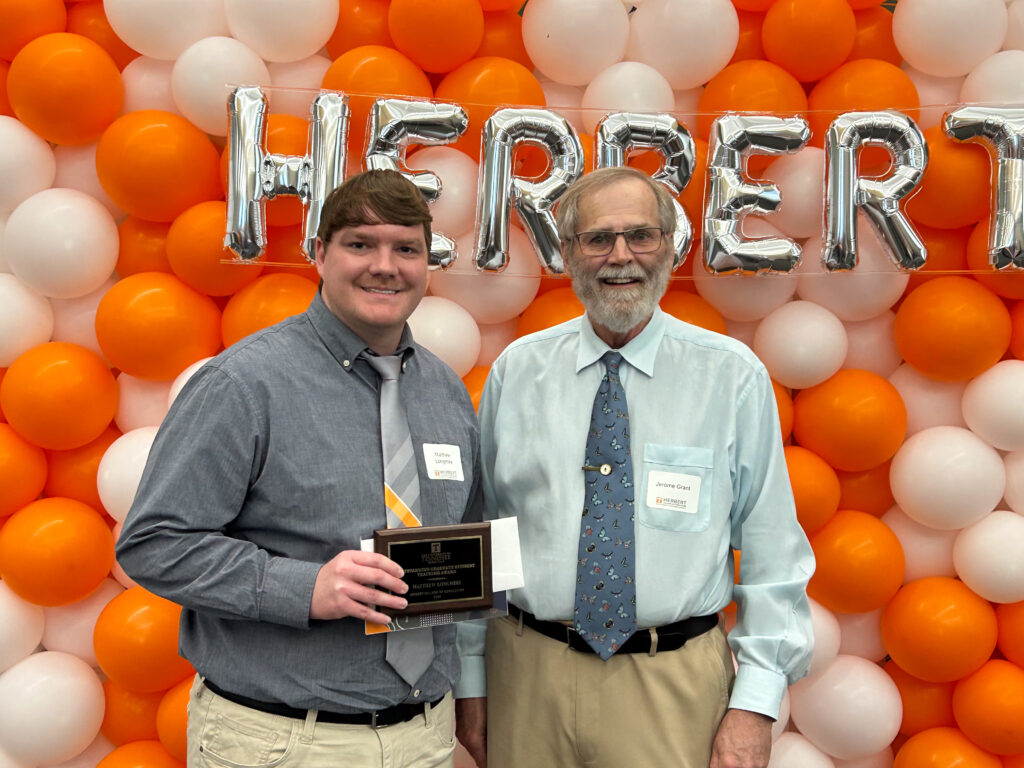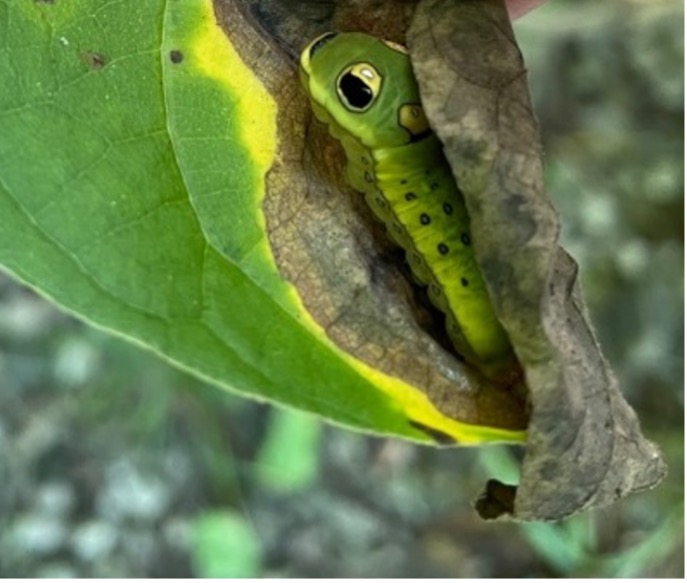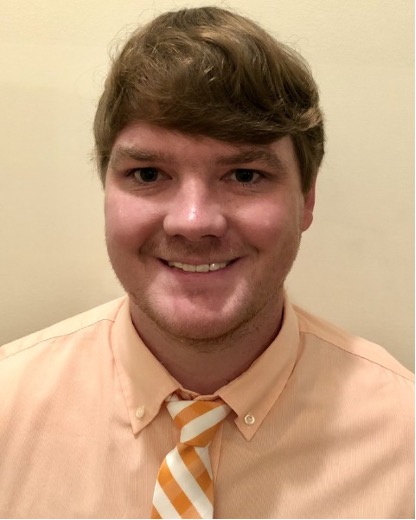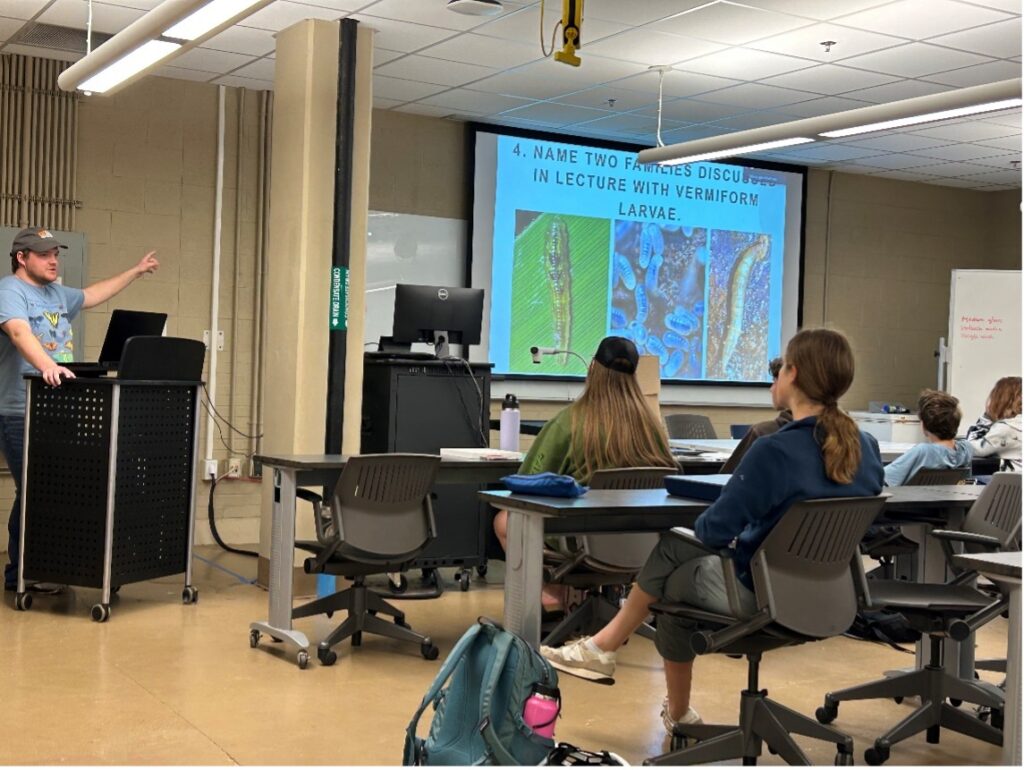
Growing up in Clinton, Tennessee, Matthew Longmire has been a lifelong Volunteer, following in his family’s footsteps. In 2018, he graduated with a bachelor’s degree in biological sciences with a minor in entomology and plant pathology at the University of Tennessee, Knoxville. While completing his undergraduate studies, Longmire discovered his love for entomology and pursued his master’s degree at the Herbert College of Agriculture. As he nears completion of his doctoral degree in entomology, plant pathology, and nematology, Longmire discusses his graduate research and how his decision to work as an undergraduate research assistant impacted his educational journey.
Q&A with Matthew Longmire
Can you tell me a little bit about yourself?
I am originally from Clinton, Tennessee, just a short drive from Knoxville. Several family members have graduated from the University of Tennessee, so I have been a Vol my entire life. After graduating high school in 2015, I attended the University of Tennessee. I graduated with a bachelor’s degree in biological sciences with a concentration in ecology and evolutionary biology and a minor in entomology and plant pathology in May 2018. During my final year as an undergraduate student, I worked as an undergraduate research assistant for Dr. Jerome Grant. I had always loved insects, and working in Dr. Grant’s lab motivated me to become an entomologist.
I joined the University of Tennessee Institute of Agriculture and began my master’s program in the Department of Entomology and Plant Pathology with research focusing on the impact of dual-use cover crops on insects in soybean. I graduated with a master’s in entomology and plant pathology with a concentration in entomology in 2020 at the height of the COVID-19 pandemic. I remained in EPP at UTIA to begin my doctoral program, from which I will soon graduate. I have a passion for outreach and teaching, which has fueled over since I was an undergraduate researcher in EPP.
What is your current concentration?
My current concentration is organismal biology, ecology, & systematics.
What academic classes have been your favorite and why?
My favorite class as a doctoral student was EPP 509: Plant Health Diagnostics. This was a very hands-on class taught by our professors, who are UT Extension Specialists. It combined a variety of techniques for both lab and field work and provided valuable insight into the responsibilities associated with a job in Extension. This class was wonderful for learning how to identify insects and diseases that cause damage to plants and would be great for any student considering a career in Extension.
How has your academic training at The University of Tennessee prepared you for a career?
My academic training at UTIA has well-prepared me for a career in academia, industry, or the government. Participating in professional meetings as both a student speaker and a guest speaker has allowed me to develop my public speaking and networking skills. I was aided in expanding the scope of my knowledge by transitioning from agricultural-oriented research with my master’s to forest entomology with my doctorate. That provided me with a much broader array of topics and allowed me to meet colleagues in a variety of entomological disciplines. Participating in outreach activities allowed me to better learn how to communicate scientific topics with the broader public.
I have served as vice president and secretary/treasurer for the EPP Graduate Student Association since I was a master’s student. This experience taught me how to conduct formal meetings and proceedings, as well as how to serve on committees. I also had the opportunity to advance my teaching skills by co-instructing a lecture and lab-based course on introductory entomology for the last four years, including one year with both online and face-to-face students due to a lasting pandemic. Many of the challenges I have faced during my time in EPP, especially taking classes and teaching a course during a pandemic, allowed me to learn how to adapt on the fly and prepared me for whatever life may throw my way. My experiences in EPP and UTIA have prepared me for success in the future.
What is your current research question?
I am investigating how to inform conservation efforts by determining the diversity and community composition of insects associated with northern spicebush and how these insects may be impacted by laurel wilt.
What are your primary obstacles in answering this question?
The primary obstacle in my research was the lack of existing information on the subject. Few studies have focused on how laurel wilt will impact Lauraceae, such as spicebush, in non-coastal regions, and there was no comprehensive study on which insects are associated with spicebush. That meant my research had to be very thorough and involved 3 years of weekly field collections for every insect I observed and learning how to identify all of those insects. There were a lot of samples to identify!
Can you tell me more about your research?
An insect-vectored pathogen, laurel wilt, is endangering populations of lauraceous plants, such as spicebush and sassafras, in Tennessee and many other states in the eastern U.S. My research is helping to build a record for insects that depend on spicebush for food or shelter. Many of these insects are native to Tennessee. We do not know the full impact of losing such insects and what this may mean for Tennessee forests. Information provided through my research will inform which insects are most at risk if laurel wilt kills their plant hosts in an effort to conserve them.
What has been the highlight of your graduate school experiences so far?
I had many highlights during my graduate school experiences, but the biggest highlight is probably the friends I have made during my time in EPP. I have made several lifelong friends, many of which I have been fortunate enough to keep in touch with or even see at professional meetings in their new programs or positions. From wacky misadventures on field trips or at meetings, to having fun at game nights, the friends I have made have helped to keep me sane from the stresses that come along with the graduate school experience.
What do you believe is your biggest academic achievement?
The achievement I am most proud of is receiving the 2024 Herbert College of Agriculture Outstanding Graduate Teaching Assistant Award of Merit. I love teaching and have worked hard over the past four years to create lectures and lab activities while improving and adapting my teaching to benefit the students however I can. Perhaps even better than the award itself, I have seen several students I previously taught who told me that taking our class made them want to pursue graduate school or even a career in entomology.

What do you believe is your biggest academic achievement?
The achievement I am most proud of is receiving the 2024 Herbert College of Agriculture Outstanding Graduate Teaching Assistant Award of Merit. I love teaching and have worked hard over the past four years to create lectures and lab activities while improving and adapting my teaching to benefit the students however I can. Perhaps even better than the award itself, I have seen several students I previously taught who told me that taking our class made them want to pursue graduate school or even a career in entomology.
What kind of extracurricular activities do you participate in?
In addition to serving as vice president, and later, as secretary and treasurer for the EPP Graduate Student Association, since 2018, I have been very involved with the Cooperative Agricultural Pest Survey (CAPS), a program through USDA APHIS which monitors for invasive species of insects and pathogens across the U.S. Beginning in 2020, I have acted as the Assistant State Survey Coordinator for CAPS in Tennessee, which involves planning, setup, and monitoring for this survey across the state, as well as assisting with the development of reports to assess the success of the program. I am also responsible for coordinating with federal, state, and university entities throughout Tennessee to enter all the data from this survey into a federal database. Recently, I attended the Southern Plant Board meeting in Lexington, Kentucky to learn about how CAPS is implemented in other states as well as new invasive pest threats to the U.S.
What are your favorite hobbies?
My favorite hobbies include basketball and playing video games that allow me to keep in touch with friends.
What are your favorite things to do on campus?
When I have free time on campus, I enjoy being in the UT Gardens. They always have a wide variety of plants to look at, which also means you are likely to see some cool bugs, which is what I’m really there to see.
Any advice you would like to share with a prospective student?
My advice to a prospective student would be to take the opportunities that are presented to you, even if they are outside your comfort zone. Working as an undergraduate researcher was something I was told I needed to complete to gain the necessary experience for graduate school. It was far outside anything I had ever done or was comfortable doing. However, through taking this opportunity, I learned so much, and it put me on the path to working with Dr. Grant for my master’s and now doctoral degree, which I honestly never thought would be a possibility for me. Taking opportunities to put yourself out there could lead to a friendship, an award or grant, or even a job in whatever career you want. The faculty, staff, and other students in EPP are willing to help and will provide you with the tools you need to succeed.
Is there anything that you would like to add?
I am very grateful for the time I have spent in EPP. I have been given so many opportunities that I never imagined were possible. I have attended and presented at meetings all over the country, served the community through outreach, helped teach a college course, assisted in government research and surveys, and built connections with people in a wide variety of positions and careers. I have EPP and my advisor, Dr. Jerome Grant, to thank for these opportunities.



